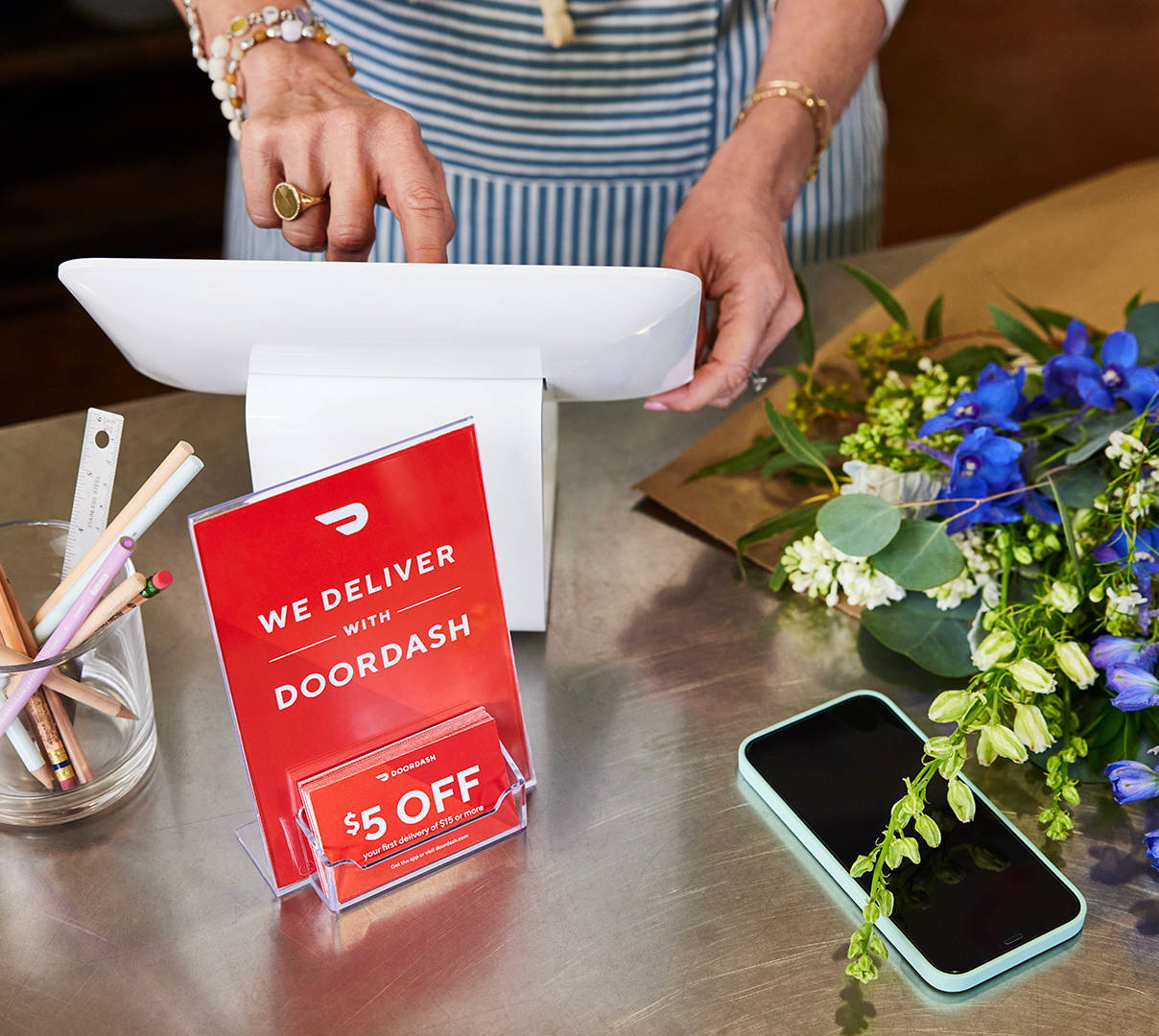While 90% of people are back to eating out at restaurants, restaurant businesses are not all quite out of the woods from the challenges of the last few years. Though some are thriving, bringing in more revenue than ever, many are still paying off debts and trying to manage ever-shifting labor and supply chain challenges.

"We've been facing challenges like sourcing ingredients, and balancing food costs. But what's helped us succeed has been consistency, listening to our customers, and adapting. Take the time to really understand what your customers want, and fill those needs."
Operating a restaurant business today may feel like running at full speed just to get back to a healthy baseline — but there's a lot you can do to make things easier today and in the long run. Here's a variety of marketing strategies restaurants can try to sustainably grow their businesses.
10 restaurant marketing strategies to try this year
1. Learn more about your customers
Restaurants can conduct customer research using more formal methods (e.g., customer surveys) or informal methods like talking to customers during their visit. Take the time to learn about your audience: their tastes, how often they dine out, the size of their households, and what their priorities are when it comes to restaurants. This can help inform the tactics you use in the marketing strategy for your restaurant and improve the effectiveness of your efforts.
2. Run promotions for loyal customers (like buy one get one free)
Once you understand what your customers want and need from your business, you can start to plan promotions and discounts that are tailor-made to catch their attention.
Here's some examples of creative, targeted restaurant promotions and discounts:
For a restaurant in a college town, you can waive the delivery fee for late-night orders during exam season.
If your restaurant guests tend to be families, create attractively priced combos or bundles made specifically to feed a family.
If your restaurant is surrounded by offices, promote your lunch offerings and reward loyalty with a free coffee or dessert on a customer's third order from you.
For a restaurant with a cause that's important to its community, offer a free appetizer or dessert for customers who show proof of donation to a charity of your choice.
DoorDash partners can also experiment with promotions that have universal appeal, like:
Waived delivery fee for a first order from a new customer
Percent discount on a first order from a new customer
Free appetizer with the purchase of an order over a certain dollar value
Buy one item, get one half off
To boost sales at their suburban locations and reach students at nearby colleges, Coyo Taco ran a promotion offering 15% off DoorDash orders during finals month. The five-week campaign saw a 33% increase in week-over-week sales and 27% increase in new customers at those locations.
3. Optimize your menu
Taking a hard look at your menu and your profits is an important step to growing your business, as food waste can be a profit-killer. Eliminate menu items that produce more waste than profit, and add combos that are appealing to your customers and helpful to your bottom line. This process is called menu engineering, and it's an integral part of designing an effective menu for your business.
Great food photography also sets you apart from your competitors. Gen Z says that a restaurant's food photos is in their top five reasons for trying a new restaurant.
Favorites Thai BBQ's delivery menu focuses only on items that travel well, but they also offer alcohol for delivery to boost average check size and profitability.
4. Automate your email newsletter to reach loyal customers
Adding a simple pop-up window or banner for your sign-up form — or giving customers the chance to opt in to email updates when placing their order — will help you organically grow your email list. Though setting up email marketing takes work at the beginning, it's an extremely effective channel to promote and grow your business.
Once you've built a few emails, the best marketing tools can be programmed to send automatically, reminding customers who haven't been back in a pre-set number of months to take advantage of an exclusive promotion.
5. Build partnerships to promote your restaurant
Restaurant partnerships can be a very effective food marketing strategy. You can try sponsoring local teams and charity events, but also try partnering with other food businesses. For example, if you make croissants, talk to a local cafe about supplying their business with baked goods. If you're next door to a bar, offer to create a few simple menu items that you can prepare to serve next door.
For example, Radical Road Brewing Co. in Toronto offers food for their guests from Mean Bao.
6. Ensure your Google Business information is always accurate
If a customer tries to visit your business on a day you're closed because the information they saw online wasn't right, they likely won't bother trying again. Part of growing your restaurant's reach is about removing any potential stumbling blocks your customers encounter when considering your business. That means keeping an updated website with accurate hours of operations and location info, but also making sure that information is always correct on your restaurant's Google Business and Google Maps listings.
7. Build your brand on social media
Social media is one of the most popular digital marketing channels for restaurants. Instagram has long been an important social channel, as its photo-focused interface lets restaurants easily show off the most tempting and exciting photos of their food and atmosphere. And though it's less popular with Gen Z consumers, Facebook can also still be a useful channel for social media marketing for restaurants — especially paid ads.
Today, TikTok is gaining ground, and restaurants are creating short videos that give potential diners an even clearer picture of what it's like to eat at their restaurant. Table 51, a Montreal-based upscale comfort food kitchen and bar, has a truly delightful and humorous TikTok presence — and their videos regularly reach hundreds of thousands of viewers.
8. Meet customers wherever they are
Today, restaurants continue to benefit by offering customers many ways to order. The public has grown accustomed to the convenience and comfort of takeout and delivery on their favorite apps, so keep using these channels to reach new customers and continue serving your off-premise regulars. At Kokomo in Vancouver, implementing DoorDash led to 20,000 new orders.

"From a business perspective, [using DoorDash] is a no-brainer. We’ve driven $500,000 in incremental sales since joining DoorDash. It’s an honour to serve so many new customers."
9. Try out DoorDash Online Ordering
DoorDash Online Ordering lets restaurants build their brand and acquire new regulars with commission-free online ordering done directly through their own channels. Online Ordering integrates with existing partners and offers personalized loyalty and gift card programs. Other companies charge monthly fees for this service, but with Online Ordering, restaurants only pay for payment processing (2.9% + $0.30 per order).

"The biggest bonanza of Online Ordering is that it's commission-free. I mean, you can’t beat it."
Learn how to set up Online Ordering with our guide to adding Online Ordering to your website.
10. Make the most of DoorDash marketing tools
The DoorDash Merchant Suite is full of marketing tools to help restaurants attract new customers and bring back ones that haven't been by in a while.
Promotions: You can offer promotions and discounts right in DoorDash that help you stand out from the competition and encourage guests to spring for a bigger order with a percent discount or free item.
Sponsored Listings: DoorDash restaurants can use sponsored listings, or paid ads that are placed prominently in the DoorDash app, to help to increase visibility for your store. Unlike ads on other platforms, they are pay-per-order — which means you’ll only be charged for orders placed through your ad, not for clicks or impressions.
DashPass: Restaurants on DoorDash Premium and Plus plans can use DashPass, which means they'll be shown first to DashPass subscribers — customers who tend to order more frequently and place larger orders than non-DashPass customers.

"DashPass has helped us to get new and loyal customers — most order 5 out of 7 days a week. DashPass brings me a lot of loyal customers that order regularly."
More trends in marketing strategy for restaurants
In addition to the strategies listed above, try these approaches to market your restaurant.
Influencer marketing: Using local food influencers to boost awareness of your restaurant.
Loyalty programs: Own more of the customer journey and build return customers through creative digital loyalty programs.
Referral marketing: Word of mouth is a powerful form of organic advertising, and it has never been stronger in today's saturated market. 92% of consumers say they trust recommendations from family and friends over traditional advertising.
In-person dine out events (such as pop-ups or festivals): Diners want to experience their local neighborhoods and restaurants in new and novel ways.
Explore marketing tools offered by DoorDash, choose a few other marketing strategies to test, and plot your path forward to growth. Your diners, employees, community, and P&L will thank you.





